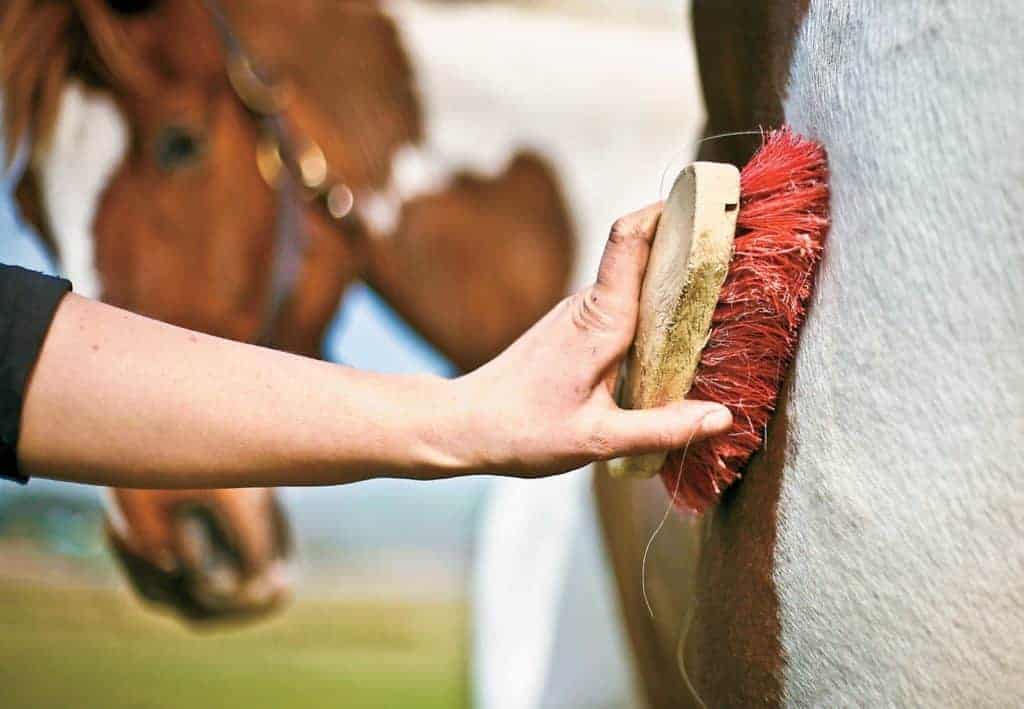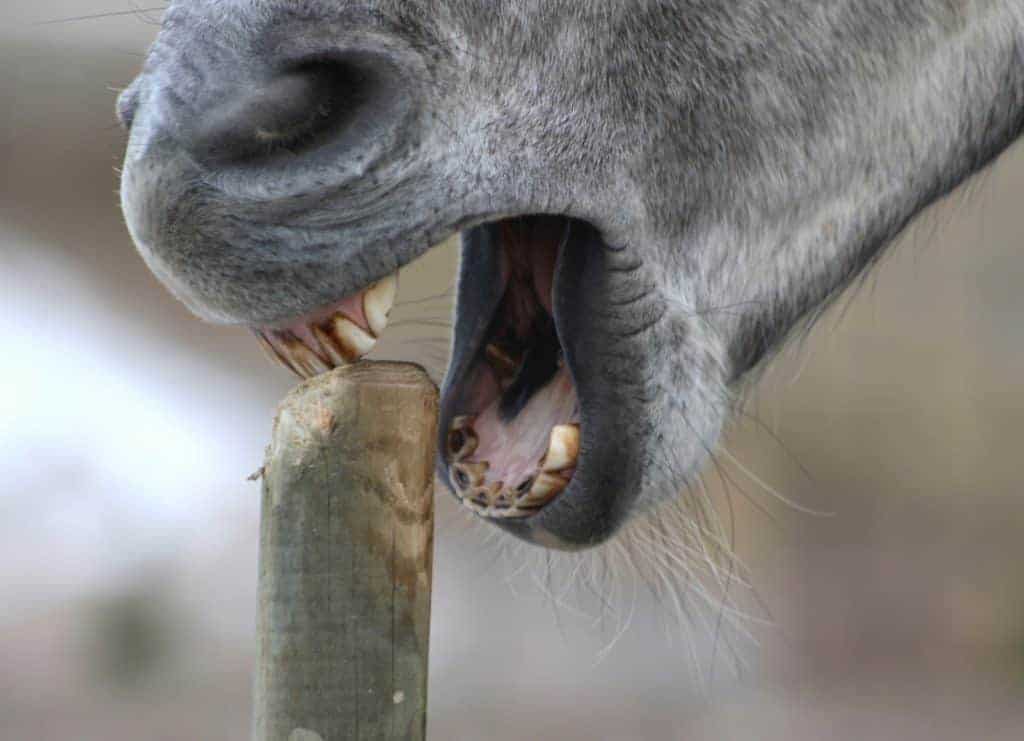
Dominance in Human-Horse Relationships
Our equine behavior expert examines if dominance has a role in human-horse interactions, especially during training.

Our equine behavior expert examines if dominance has a role in human-horse interactions, especially during training.

A researcher tested whether treating gastric ulcers as the cause of cribbing could reduce the behavior; omeprazole at a standard dose wasn’t useful for this purpose.

The Horse and Zylkene have partnered in September to bring you the facts behind horse behavior.

Stress not only leads to stereotypical behaviors and high cortisol (stress hormone) levels but also disrupts the horse’s gastrointestinal (GI) system and microbiome.

Daylight cycles influence physiology and behavior rhythms. And, as an Irish researcher recently reported, understanding how horses respond to these cycles can help you better manage your animals.

Studies have shown a lunar influence on humans and animals, from fertility levels to hormone fluctuations to immune response. More research into its effect on equine colic, however, needs to be done to make a strong association.

A researcher tested common oil-based palatants to find out which horses liked best. Here are her results.

International Society for Equitation Science conference attendees learned about practical applications of scientific studies and discovered new theories about horse welfare and behavior.

Get an insider’s recap of the world’s leading equitation science conference. You’ll also learn about whip use, rider balance, and safety.

Do grazing muzzles cause stress or alter social behavior? Researchers tested a group of Miniature Horses to find out.

Researchers determined that Equivibe-treated stalled horses had lower heart rates, cortisol levels.

What could be the cause behind this young horse’s strange tongue lollying at feeding time? Dr. Sue McDonnell answers.

Previous studies have shown horses are more reactive on starchy diets but not the reasons behind the nutrition-related behavior. A Scottish researcher discovered that the gut-brain axis might be the link.

Researchers reported that more horses avoid being groomed than show signs of liking it. Here are tips to help your horse enjoy his grooming experience.

A Virginia Tech researcher investigated the impact of diet on lesson horses. Here’s what she found.

A reader’s 17-year-old horse started trying to crib recently, which she’s never seen him do before. Why would he start now? An equine behaviorist offers insight.
Stay on top of the most recent Horse Health news with
"*" indicates required fields